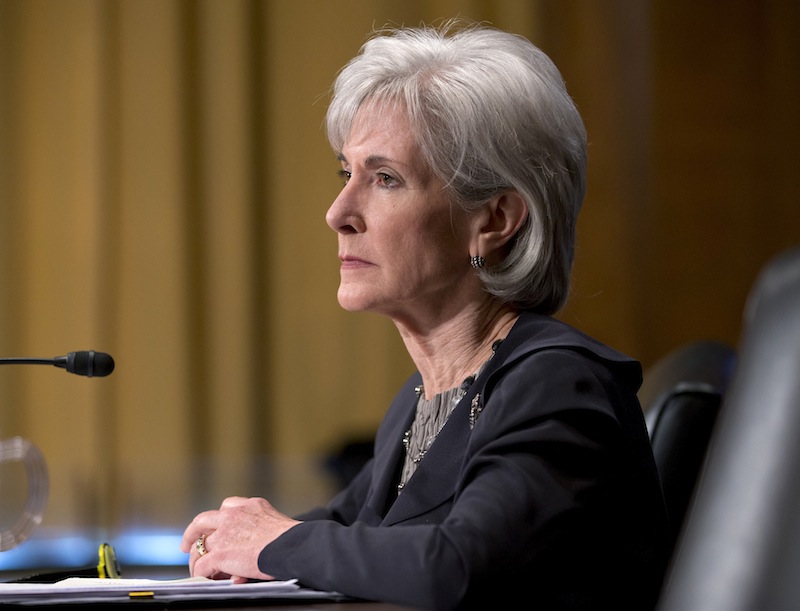The refusal of red states to establish their own online insurance marketplaces under Obamacare has impeded the White House’s outreach efforts with a month to go before the marketplaces launch on Oct. 1.
In the most extreme cases, red states with huge uninsured populations will have the same amount of money to spend on outreach as blue states with much smaller segments of uninsured, according to an analysis of grant information by TPM.
Take a look at these numbers: Texas, where Gov. Rick Perry steadfastly refused to establish a marketplace, also known as an exchange, has 6.1 million uninsured people. Washington state has less than 1 million. But they will have the same amount of money for Obamacare outreach.
When the Obama administration handed out two sets of grants for exchange outreach and enrollment this month, Texas received a total of $20.8 million, according to the U.S. Department of Health and Human Services. Washington state, on the other hand, which established its own exchange and had therefore access to much more generous federal funding, will spend $20.4 million on its marketing efforts, according to state officials.
Or look at another state: Colorado’s entire population is smaller than Texas’s uninsured population, but Colorado is spending more money (more than $21 million) marketing Obamacare.
Congress crafted a fallback for the federal government to run an exchange in states that refused to create their own. But the White House didn’t expect many if any states to take that option, and the law didn’t establish funding for those federal exchanges. More than 30 states, the vast majority of them controlled by the GOP, have declined to establish their own marketplaces in the last three years.
With most Americans unaware the exchanges even exist — including three in four of the key young and healthy demographic — it seems likely that these differences in outreach resources could significantly impact how well the health care reform law will work in different states. The White House has said enrollment in states like Texas and Florida, which received $15.9 million for exchange outreach, is crucial to the law’s success. But those states will be working with considerably less federal money to help get people to the exchanges.
“I expect the state exchanges to outperform federal exchanges, and one reason would be this,” Joel Ario, a consultant at Manatt Health Solutions and former HHS official under the Obama administration, told TPM. “State-based exchanges are putting more into that hands-on outreach and messaging consistently from the political end. People in Texas and Florida are still hearing that the exchanges aren’t going to work.”
That oversight in the Affordable Care Act’s language exacerbated the outreach disparity. The law’s framers expected most, even all, states to set up their own exchanges and therefore only included funding in the law for those state-based exchanges. That’s allowed states like Colorado and Washington to draw from a federal pie of more than $1 billion while creating and marketing their exchanges. But there was no funding set aside for the federal-run marketplaces.
As a result, the feds have been forced to scramble to find marketing money. The House has refused to allocate additional funding for federal outreach efforts, so the White House is looking for any resources to push its message. They siphoned money from a fund that was supposed to be set aside for public health initiatives to build the federal exchanges, and HHS Secretary Kathleen Sebelius has reportedly called health insurance executives asking for assistance in promoting the law.
HHS did award this month a $41.2 million contract to Weber Shandwick, a public relations firm, for a national marketing campaign — but that figure, intended to help reach roughly two-thirds of the country, is still dwarfed by what states like California ($290 million) are spending for their campaigns. The White House is also depending on non-profit organizations like Enroll America and Families USA to pick up some of the slack.
On top of the funding differences, Obamacare critics like Texas Republican Gov. Rick Perry have continued maligning the law, which also complicates messaging for advocates, but they insist that they’re starting to overcome those challenges by meeting people in the field.
“There continues to be a challenge in getting the word out because there is that gap there,” Jessica Barba-Brown, national communications director for Enroll America, told TPM. “But this is moving from the political to the practical. This is starting to become real for people, and that’s where the interest is. There’s must less interest in what the governor says or what the president says.”






